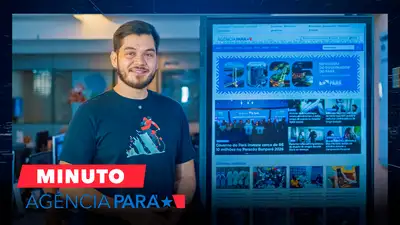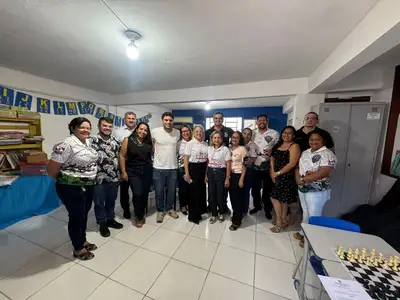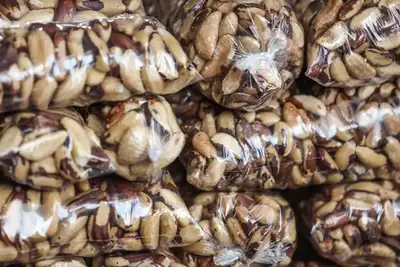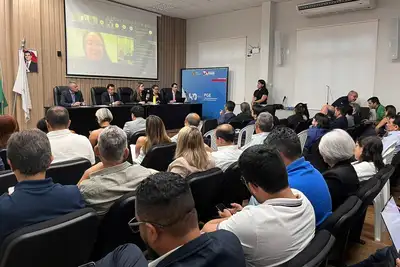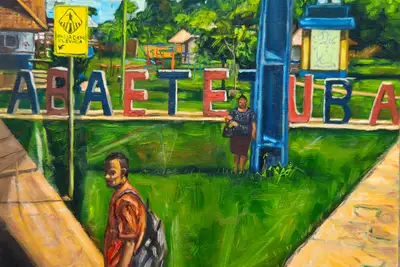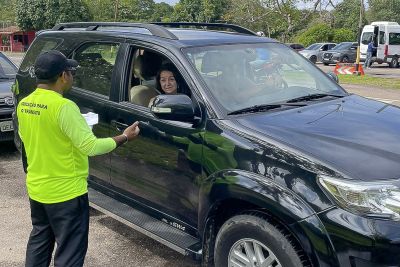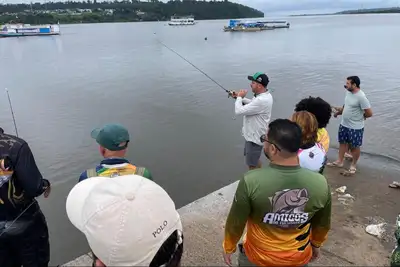State invests in qualification and certifies more than 100 people in three courses
The action stemming from the project 'Feeding Opportunities' seeks to ensure qualification and certification for professionals in the productive and food sector, as well as to ensure that everyone follows the appropriate standards of quality and safety in services.
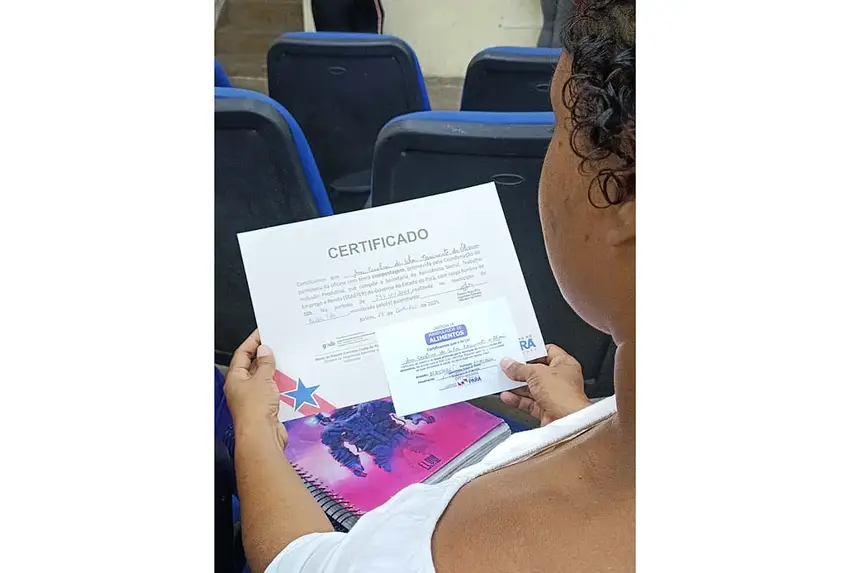
The government of Pará, through the State Secretariat for Social Assistance, Labor, Employment and Income (Seaster), promoted, on October 22 and 23, integrated courses to the project 'Feeding Opportunities', with training in composting, food handling, and good food practices. The action involved the participation of 105 people working in the food sector and took place at the Technical School Professor Francisco das Chagas Ribeiro de Azevedo, located in Icoaraci.
Seaster, through the Directorate of Food and Nutritional Security (Disan), promoted the courses with the aim of ensuring food safety and good practices, as well as boosting the local economy, generating more jobs and income.
“I work with my mother, we sell typical foods, and for me, it was a satisfaction to participate in the food handling course because we always have something to learn more and more. We learned about the proper use of PPE, material storage, and temperature. Regarding the cutting board, he said it has to be either wood, glass, or silicone. I didn't know that; it's new to me, so I will change. I still use plastic; I didn't know. So, everything that adds to our knowledge is very satisfying because we work with the health of the population,” said cook Leila Silva.
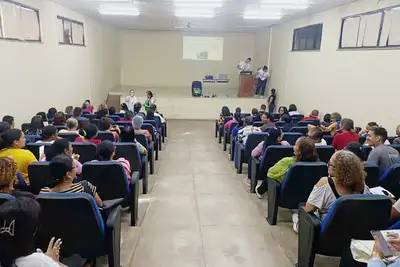
During the training in the composting course, participants received theoretical and practical guidance on the process of building compost bins, using fruit and vegetable scraps as fertilizers that can be used in agriculture, gardens, and crops, replacing the use of chemical products.
“This technique brings many benefits to the environment, both for the soil that receives the fertilizer and for reducing waste sent to landfills, minimizing river pollution. Reusing organic waste produced in households and provoking reflection on the relationships between people, consumption, and the environment is part of the goal of the organic compost workshop. In it, we show how to maximize the reuse of what could become waste and how to transform it into organic compost, which can be used to fertilize gardens, vegetable patches, or be sold, generating extra income for the family,” highlighted Seaster technician Thaynara Veigas.
The action stemming from the project 'Feeding Opportunities' seeks to ensure qualification and certification for professionals in the productive and food sector, as well as to ensure that everyone follows appropriate standards of quality and safety in services. At the end of the training, participants received a food handling card and certification for the courses conducted.
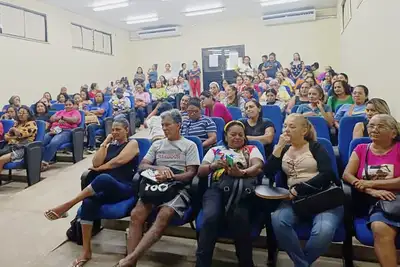
“I work with sweets, juices, a bit of everything, and our training was very good for our own cleanliness and hygiene. Knowing how to use any material, even in cuts, was very good. We learned today how to cut accurately, with all the care. I really liked it; I will take many good things with me,” reported Rosa de Souza.
“The government of Pará, through Seaster, executes the project 'Feeding Opportunities', reaffirming its commitment to ensuring public policies that promote more dignity, job and income generation, as well as fostering direct qualification for workers in the food sector,” said the Deputy Secretary of Social Assistance, Valdo Filho.
*Collaboration from Melyssa Magno-Ascom/Seaster


